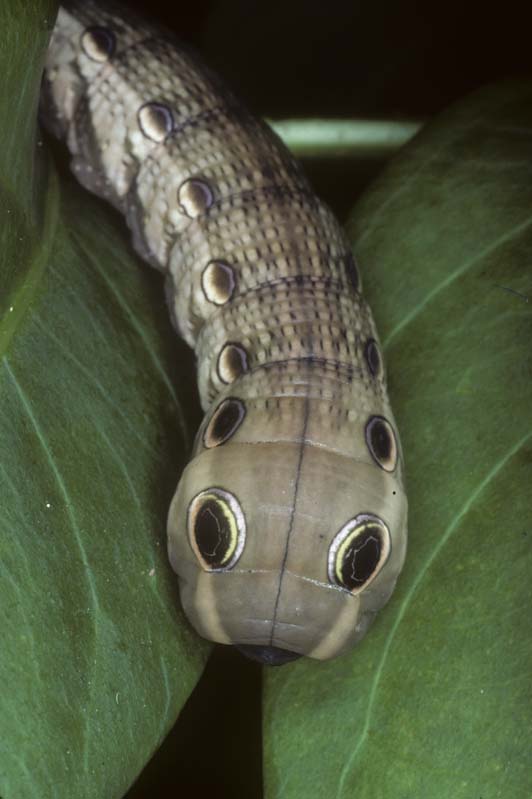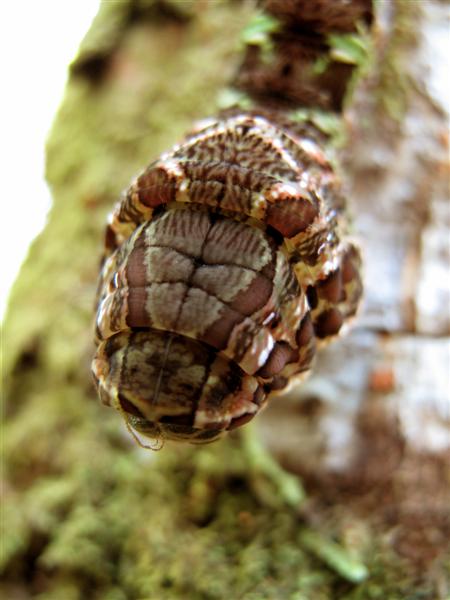I think we've come to the crux of the discussion here. Does inherited genetic change in populations over many generations lead to speciation events?...
My apologies for the delay in replying, Sparrow.
This is an interesting and thoughtful post and, given my position as an 'atheist Christian' (no, I'm not trying to get a rise out of anyone:
http://en.wikipedia.org/wiki/Christian_atheism), you will readily understand why I do not regard the Bible in this matter (and the books of the Old Testament specifically) as a source of either relevant or useful information. Consequently, I see attempts to square the circle of a pre-scientific culture's understanding of and explanations for the world (and Universe) with knowledge developed through generations of scientific research as largely futile. So my comments on the points I have chosen to highlight are coming from that point of view and, regardless of my opinions here, I have no problem with respecting your own.
Pardon my amateurish descriptions, and please do read what I'm saying here for my intent -- because it serves our purpose and it is my hope that we might be able to clarify the issue here. If we could incorporate the expanded definition of "species" to that of "miyn" or "kind," we would observe that a new species could arise when a population is isolated and inbreeding occurs. By this definition a new species is not a new "kind" but a further partitioning of an existing "kind".
Maybe amateurish (I should talk), but clear and concise, which is what's important. This is an interesting approach, but seems simply to push the 'problem' further up the taxonomic rankings. The evidence from theropod dinosaur to bird in terms of transitional features, shared traits and molecular genetics, for example, seems to push the apparent fact of speciation events into families, orders and classes.
Although Richard Dawkins' views on religion and its role in society are anathema to many here, I think it is worth considering his argument as a scientist about the tendency amongst humans (including highly-trained scientists) to want to categorise everything into well and precisely-defined groups. He calls this the discontinuous mind, which tends to see life (or whatever) in terms of discontinuous groups, when the more appropriate perspective, in this case, is to view life as a continuum, including living and extinct forms, so that each is connected to all others in never-ending chains of interrelationship. In some case the routes along this chain are simple and straightforward, but others are more complex. In the same way that you could picture a horizontal chain of touching hands connecting related living humans, so you can picture a vertical chain of touching hands, connecting each of us with an immediate ancestor and that ancestor to their immediate ancestor and so on.
There is no end-point to this chain of connectedness, but ultimately you will reach a point where the ancestor you have arrived at is related to (or may even be the source of) a split in the population that will ultimately bring about a speciation event. As I said, you can make these links continually, but the point is that we should not fall into the trap of regarding species as necessarily distinct and unique things and, by using this descriptive tool, we can see that we can ‘touch hands’ across species, genuses, families and classes.
So a ‘kind’ becomes no less a product of the discontinuous mind than does a species. And while science makes a fairly precise definition of what constitutes a species –
The biological species concept defines a species as members of populations that actually or potentially interbreed in nature, not according to similarity of appearance.
(source:
http://evolution.berkeley.edu/evosite/evo101/VA1BioSpeciesConcept.shtml)
- if we follow Dawkins’ line of reasoning we would expect to see grey areas where the distinction between individual species – or even what constitutes and individual species itself - breaks down and blurs. So domestic dogs are generally regarded as a subspecies of C lupus, the successful interbreeding of some breeds is effectively impossible without human intervention – think Chihuahua and Great Dane, for example. And while grizzly bears and polar bears are classified as separate species, they can, in fact, interbreed, but so rarely as to make the separate classification otherwise unremarkable. Ring species are, of course, the classic example of this blurring, but I think my point has been made.
I think that the real problem that we have yet to grapple with is the question about where "new information" in the genetic pool comes from. Goups of living organisms belong in the same created "kind" if they have descended from the same ancestral gene pool. This does not preclude new species because this represents a partitioning of the original gene pool. Information is lost or conserved—not gained.
I do not think you can reasonably conclude that speciation involves ‘partitioning’ of some pre-existing genetic pool of information such that at best genetic information is conserved and cannot be gained. Do you have evidence for such a model? For example, Wiki tells us that:
Although they do not use the haploid/diploid method of sexual reproduction, bacteria have many methods of acquiring new genetic information. Some bacteria can undergo conjugation, transferring a small circular piece of DNA to another bacterium. Bacteria can also take up raw DNA fragments found in the environment and integrate them into their genomes, a phenomenon known as transformation.
Source:
http://en.wikipedia.org/wiki/Genetics
Respectively, I'd like to modify lordkalvan's question then. Instead of asking, "Does this inherited genetic change in populations over many generations lead to speciation events?" I'd like to ask, "Does inherited genetic change in populations over many generations lead to changes in "kind"? Do we have evidence of this?
Given the broad range of shared traits, transitional features, atavisms, vestigial features, the evidence from molecular genetic analysis, developmental embryology, ERVs, etc, the inevitable conclusion seems to indicate that not only does change occur within broad taxonomic classifications, but also across them such that, ultimately, all life on Earth appears to have a common origin.
It is my assertion that no only did God create each "kind," He also created their seed in them.
To me it seems that, if any supernatural agent was involved in the creation of life, it was either to provide the conditions in which life could naturalistically come about, or else created the very first life itself.














